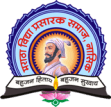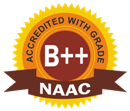- Name of the Department: Zoology
Established in 1984, our department has a rich legacy of academic excellence and unwavering commitment to exploring the wonders of animals, both within the classroom and beyond.
Our B.Sc. Zoology program provides a rigorous and stimulating curriculum, meticulously designed to equip you with the knowledge and skills needed to excel in this dynamic field. From deciphering the intricate tapestry of animal diversity and anatomy to comprehending the complex ecological networks that sustain life, our program fosters a deep understanding and ignites a passion for lifelong learning.
- Year of Establishment: 1984
- Names of Programmes / Courses offered : UG
| UG | PG | Other |
| B.Sc in Zoology | — | — |
- Number of teaching posts
| Post | Sanctioned | Filled |
| Assistant Professors | 02 | 01 |
- Faculty profile with name, qualification, designation, specialization:
| Name | Qualification | Designation | Specialization | No. of Years of
Experience |
| Mr. Vinaykamal D. Dethe | MSc. NET, SET, GATE | Assistant Professor | Zoology | 07 |
| Miss. R.J. Patel | MSc. B.Ed., MPhil, NET, SET | Assistant Professor | Entomology | 11 |
| Mrs. Poonam B. Ahire | MSc. B.Ed., MPhil, NET, SET | Assistant Professor | Entomology | 06 |
- Qualifications of teaching faculty with DSc/ D.Litt/ Ph.D/ MPhil / PG.
| Qualifications of teaching faculty | |||
| Ph.D. | M. Phil. | PG with SLET/NET | PG |
| 03(Appeared) | 02 | 03 | — |
- List of senior visiting faculty
- Number of faculty with ongoing projects from a) National b) International funding agencies and grants received
International funding agencies: Mr.Vinaykamal. D. Dethe Completed a research project on vulture conservation funded by MBZ Species Conservation Fund (UAE) with a grant of $5000.
- Publications
| Name of the Faculty | Research Papers | Total Publication | Total Citation | H Index | ||
| International | National | Proceeding | ||||
|
Mr. Vinaykamal D. Dethe |
08 |
– | – | 08 | 01 | 01 |
|
Miss. R.J. Patel |
– |
– |
08 | 08 | – |
– |
| Mrs. Poonam B. Ahire | 02 | – | – | 02 | – |
– |
- No. of Books published: 01 No. of Edited Books: 01
- Awards / Recognitions received by faculty and students
| Year | Name of the students | UG | Name of the Event | Rank |
| 2020-21 | Shaikh Taiba
Surve Nishigandha |
UG | Poster presentation in State level Workshop | Participation |
| 2022-23 | Rohit Wature
Aniket Vidhate Mahima Govind Jitkaur Daroga |
UG | Avishkar Competition (College level) | 1st and 2nd |
| 2023-24 | Arbiya Pathan
Mayuri Bhaladhare Samitaj Pathan Saba Shaikh |
UG | Avishkar Competition (College level) | 1st and 2nd |
- TYBSc Student progression (For years 2019-2024)
Sr.No Year Students’ strength Students appeared in exam Pass Students Student progression (M.Sc.) Entrepreneurship /
Self-employment
1
2019-20
17 17 17 04 04
2
2020-21
26 26 25 03 07
3
2021-22
20 18 17 09 03
4
2022-23
07 07 04 02
–
5
2023-24
17 17 16
16
–
- Details of Infrastructural facilities:
| a) Departmental Library | 15+3 (Text and reference Book) |
| b) Internet facilities for Staff & Students | 01 PC+ Printer |
| c) Class rooms with ICT facility | 01 |
| d) Laboratories | 01 |
| e) Seminar Hall | Common |
| f) Research Laboratory | 01 |
- Teaching methods adopted to improve student learning::
- 1. Active Learning Strategies:
– Encourage students to actively engage with the material. Examples include group discussions, case studies, and problem-solving exercises.
- Hands-On Labs and Fieldwork:
– Practical experiences in labs and field settings allow students to apply theoretical knowledge.
- Visual Aids and Multimedia:
– Use visual aids such as diagrams, charts, and videos to illustrate complex concepts.
-Virtual Labs: Online simulations and virtual dissections enhance understanding.
- Technology Integration:
– Leverage digital tools for interactive learning.
- Active Assessment:
– Frequent formative assessments (e.g., quizzes, short assignments) provide feedback and guide student progress..
– Assign readings or videos before class, allowing in-class time for discussion and application.
In-Class Activities: Use class time for problem-solving, debates, or collaborative projects.
- SWOC analysis of the department and Future plans: (two points for each)
- Strengths (S):
- Qualified Faculty: Having all three staff members qualified with NET, SET, and pursuing PhD demonstrates expertise.
- Active Research: Engaged faculty in research contributes to the academic environment.
- International Project Completion: Faculty member completing an international project adds prestige.
- Weaknesses (W):
- Limited Student Strength: Having a small student cohort may limit resources and interactions.
- Rural Location: Being situated in a rural area could impact access to facilities and collaborations.
- No MSc Program: Not offering an MSc program limits postgraduate opportunities for students.
- Opportunities (O):
- Community Engagement: Leverage the rural location for community-based research and outreach.
- Collaborations: Explore partnerships with nearby institutions or organizations.
- Curriculum Enhancement: Consider introducing specialized electives or certificate courses.
- Challenges ©:
- Recruitment: Attracting and retaining quality faculty and students may be challenging.
- Infrastructure: Addressing infrastructure limitations in a rural setting.
- Postgraduate Programs: Explore options for MSc programs or collaborations with other institutions.
Future Plans:
- Student Recruitment: Develop strategies to attract more students to the BSc program.
- Research Expansion: Strengthen research collaborations and seek external funding.
- Skill Enhancement: Provide faculty development programs and encourage interdisciplinary teaching.
- Community Outreach: Engage with local communities for mutual benefit.

